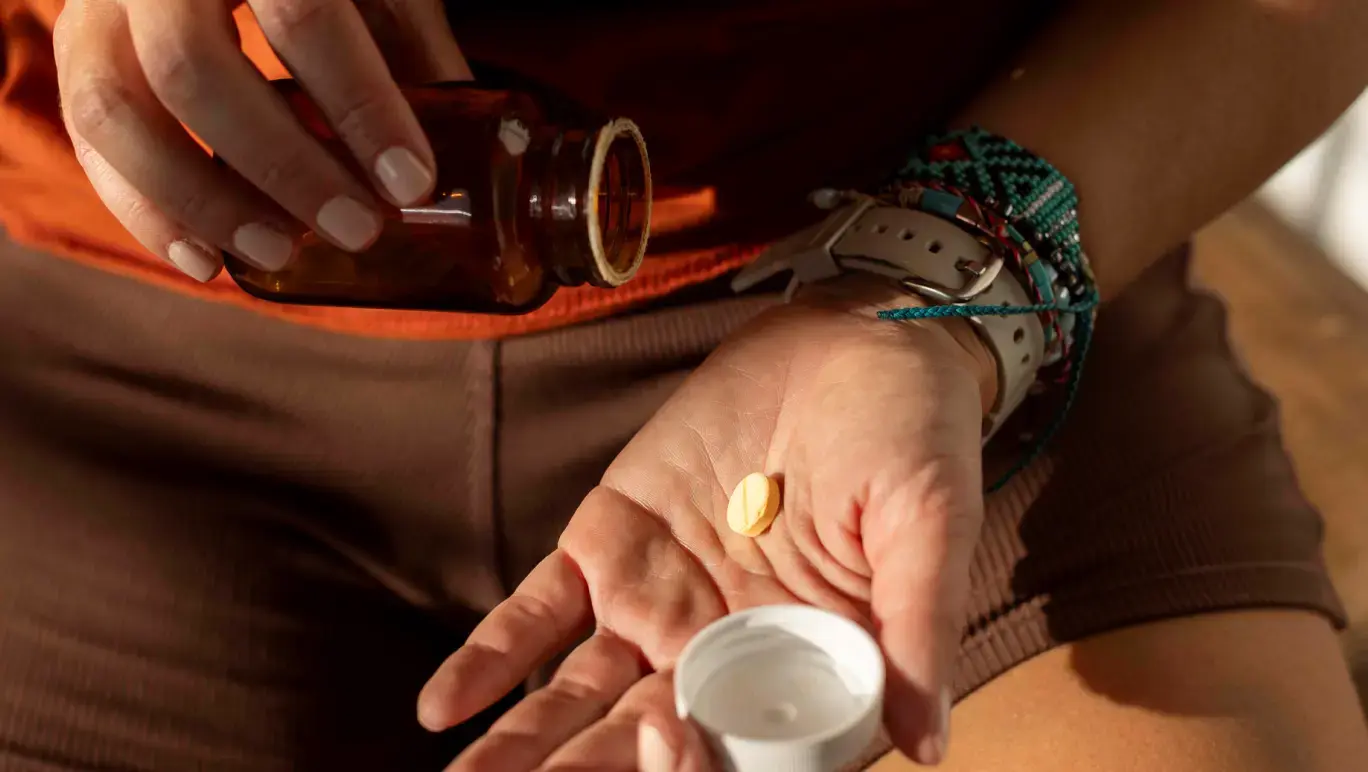Vaginal probiotics: Who needs them and who doesn’t?

Probiotics are everywhere these days, from the gut to skincare, and now they’re being marketed for vaginal health too. The vaginal microbiome plays an important role in keeping things balanced and protecting against common issues like thrush, urinary tract infections, and bacterial vaginosis.
In recent years, probiotics designed for vaginal health have gained attention as a way to support helpful bacteria such as Lactobacillus (more on this soon).
But are they really necessary for everyone? Let’s explore what vaginal probiotics are, the evidence behind them, and other simple ways to care for vaginal health.
What are vaginal probiotics?
Probiotics are “good” bacteria that, when taken in the right amounts, can support your health. Vaginal probiotics are made to look after the vaginal microbiome, which is the community of bacteria that naturally live in the vagina and help keep it healthy.
Normally, this microbiome is dominated by a type of bacteria called Lactobacillus. These good bacteria produce lactic acid, which keeps the vagina slightly acidic (around a pH of 3.8-5). That acidity is important because it makes it harder for harmful microbes to grow.
So, what exactly are vaginal probiotics? They usually come in two forms:
- Oral capsules: You swallow these like a regular supplement.
- Vaginal suppositories: These are inserted directly into the vagina, so the probiotics go straight to where they’re needed.
Are there benefits?
Research into vaginal probiotics is growing, but the results are mixed. Here’s what the evidence currently suggests:
Supports healthy vaginal bacteria
Helps to maintain or restore a balance of Lactobacillus and other beneficial bacteria.
Prevents or reduces the recurrence of bacterial vaginosis (BV)
Studies show certain strains can help to rebalance the bacteria and reduce recurrence.
Reduces risk of yeast infections
Some evidence suggests probiotics may help prevent overgrowth of candida, which causes thrush.
Helps restore balance after antibiotics
Antibiotics can disrupt both gut and vaginal bacteria; probiotics may help to recolonise good bacteria.
Supports urinary tract health
A balanced vaginal microbiome may reduce the likelihood of urinary tract infections.
May aid fertility and pregnancy outcomes
Early research suggests probiotics could help maintain a healthy vaginal environment, which may support conception and reduce certain pregnancy risks.
Potential role in menopause support
Probiotics may help maintain vaginal pH and microbiome balance during hormonal changes.
Are there downsides?
- Not all probiotic strains survive or successfully colonise the vagina.
- Many studies are small or short-term, so more high-quality research is needed.
In short, vaginal probiotics show promise, but more research is needed on the best form, species and treatments.
Who might need them?
Vaginal probiotics could be worth considering if:
- You experience recurrent bacterial vaginosis or yeast infections
- You’ve taken frequent or long-term antibiotics
- You’ve been diagnosed with a vaginal microbiome imbalance by a healthcare professional
- You are experiencing peri-menopause or menopause
But always check in with your healthcare professional if you are unsure or if you are starting a new supplement regime.
Who doesn’t need them?
For most people without symptoms or issues, vaginal probiotics aren’t necessary. If your vaginal microbiome is already healthy (meaning no unusual discharge, odour, itching, or discomfort), your body is doing the work naturally.
Using probiotics unnecessarily won’t provide extra benefits, and in some cases may even disrupt your natural balance if used inappropriately.
Other ways to improve vaginal health
Probiotics aren’t the only way to care for vaginal health. Everyday habits play a big role too:
- Skip douching and scented washes as they can upset vaginal pH.
- Practice safe sex using latex-free condoms, and water-based glycerine lubricants which can help reduce the risk of imbalances.
- Wear breathable underwear (like cotton or bamboo) and change out of damp or sweaty clothes quickly.
- Eat a balanced diet rich in fibre and fermented foods, which support gut health and may indirectly influence vaginal bacteria.
- Practice good hygiene basics, such as always wiping from front to back.
When to speak to a doctor
It’s important to check in with a healthcare professional if you notice:
- Persistent itching, burning, unusual discharge, or odour
- Recurring infections despite lifestyle changes
- You’re considering vaginal probiotics during pregnancy or if you have a medical condition
The bottom line
Vaginal probiotics are an interesting and evolving area of women’s health. The evidence shows potential benefits, especially for people with recurrent bacterial vaginosis or after antibiotic use, but they aren’t needed by everyone.
For most, supporting vaginal health is less about supplements and more about simple, consistent habits and knowing when to seek medical advice.
Reviewed by the Healthylife health experts September 2025.
This article is for informational purposes only and does not provide medical advice, diagnosis, or treatment. Any information published on this website or by this brand is not intended as a substitute for medical advice. If you have any concerns or questions about your health you should consult with a health professional.
